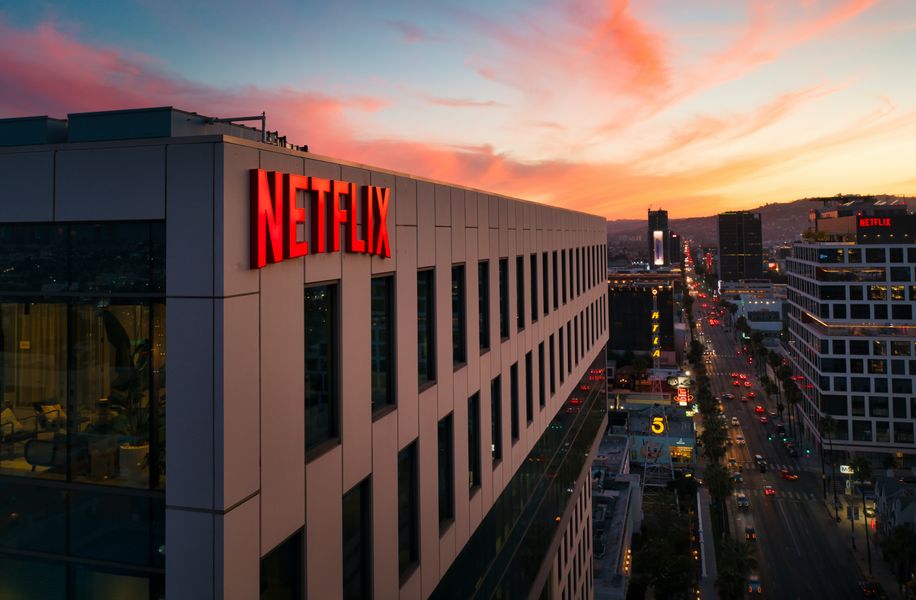Towards the end of 2021, Netflix streamed the first-ever Ugandan original, The Girl in the Yellow Jumper, by Loukman Ali, paving the way for the inclusion of more local and original African Nollywood content on the streamer. This could indicate streamers like Netflix finally taking original African content seriously and begin taking more interest in them. For decades, the talent and voices within the African market were left ignored by the producers and the global streamers. However, according to Mo Abudu, a pioneer in the Nigerian television industry, “the reality of the marketplace has changed.”
Ali’s feature revolves around a man who is inexplicably taken hostage by a mysterious figure and then tortured by two female religious fanatics. After he escapes, another dangerous pursuit ensues. Ali had begun shooting for the film in 2019 but had a huge issue proceeding with completing the process due to the socio-political turmoil in Uganda. The director has spoken about how they got chased away from every location.
He shared, “There were times the actors went without food because we had used up all the money. We stopped filming for more than a year as we scraped together resources. The actors would return after months having changed, having gained weight, grown hair or a beard where there was only stubble in the previous scene.”
However, he managed to persevere despite a plethora of obstacles and finally got his film picked up by Netflix. After viewing the feature, there was a pique in audience interest towards African content. As reported by The Hollywood Reporter, Abudu’s company, EbonyLifeMedia, too decided to focus on global marketing and struck a multi-title deal with Netflix, becoming the first-ever company to do so. These included dramas that touched on relevant issues like human trafficking, child abuse, domestic abuse, besides other period dramas and sci-fi thrillers, namely Oloture, Blood Sisters, Death and the King’s Horseman, Nigeria 2099 etc.
However, this often makes us wonder what pushed the streamers like Netflix and Amazon to suddenly begin aggressively venturing into the African market. Previously, it was difficult for the African filmmakers and producers to pitch their ideas, and their stories were often told from a foreign perspective, making them feel alienated and isolated from the industry. We feel that the sudden spike in African content comes down to the lucrative global market that has been untapped and ignored for quite some time.
After being successful with Spanish dramas like Money Heist and Elite, Netflix hit the jackpot with the 2021 South Korean series Squid Game. Not only did it become the streamer’s highest-grossing series, overtaking the likes of Stranger Things, Sex Education, You and others, but it also showed the viewers’ innate interest in foreign-language content with their appetite for English content diminishing gradually. They are constantly looking for something new and fresh, which the foreign markets have to offer. No longer do the streamers only cater to the needs of the white demographic, with an increase in the number of global subscribers.
Besides investing in more Korean content, Netflix, which has reduced subscription prices in India, also understood the strategy of investing in more local content to increase the number of subscribers in India. They applied the same logic for other East Asian and South-East Asian countries, namely Japan, Indonesia, Philippines etc., which proved to be beneficial.
Africa, too, is a part of their visionary global expansion deal. While subscription numbers in places like the United States, Canada, and the United Kingdom have peaked and stagnated, these global markets remain untapped. More than half of American households have Netflix subscriptions, whereas the figure is pretty low in South America, Africa and more.
By aggressively venturing into these untapped markets, Netflix can stay abreast of the competition while battling it out in the game of numbers with its fellow competitors, mainly Amazon and Disney+. To increase the interest in these regions and to keep up with the needs and wants of the shifting demographic, investment in local African content seems of utmost necessity — people want to hear original stories and authentic voices. Thus, streamers like Netflix have finally begun taking an interest in original African Nollywood content and no longer shunning these indigenous voices, getting ready to let their talents shine through.
